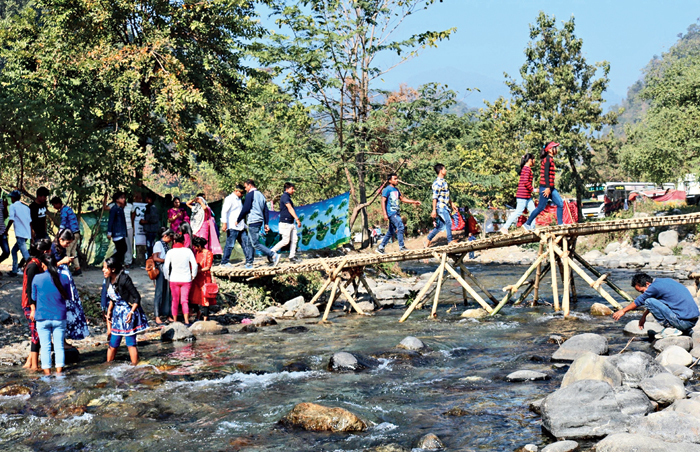The meat of the matter is that the CAA-effect is telling on fish, mutton and chicken vendors in this Tinsukia district town of Upper Assam.
“The sale of mutton is down. Procuring goats is also very difficult as people want to keep their goats and hens for emergency, in the event of a bandh or curfew because of protests over the Citizenship Amendment Act (CAA). Offer of higher prices is also not working,” Shamim, a mutton-seller, said.
“Previously, during new year, despite easy availability of chicken and mutton, there was a 20 to 30 per cent rise in the rates. This used to be a busy time of the year and we had good earnings. But the CAA cloud has dampened business,” he added.
This time, prices are stable, there are no temporary shops selling fish and meat and traders are crestfallen.
At present, mutton is being sold at Rs 550 per kg, fish at Rs 200-300 per kg, local chicken at Rs 300 per kg and boiler at Rs 200 per kg.
Temporary mutton and chicken shops will be set up to meet the high demand. Picnic groups take mutton and chicken in high quantities on their way to Sadiya, Dhola, Dibru-Saikhowa National Park, Dilli Ghat, Digboi, Margherita and other picnic spots.
“No one is going for picnic here this time. Earlier, we would hear the sound of music and watch picnickers dance in open vehicles. There were traffic snarls on the national highways. But this time people are in no mood to celebrate because of CAA. They are worried about their future. The picnic spots bear a deserted look,” a local resident said.
Ved Prakash Singh, a student, said, “One goes for a picnic when one is happy. Should we be happy because the government has passed the bill to grant citizenship to lakhs of illegal foreigners? If the government has deep sympathy for them (illegal Hindu Bangladeshis), why doesn’t it put pressure on the governments of the three countries to take them back and treat them with equality? The government can do it by strengthening its foreign policy and putting the problem on international fora.”
The CAA aims to give Indian citizenship to persecuted members of six communities who entered the country from Pakistan, Bangladesh and Afghanistan before December 31, 2014 though the Assam Accord cut-off date is March 25, 1971.
People are worried that CAA will help lakhs of Bangladeshi Hindus to settle in Assam, posing a threat to their language and culture.
At Kakopathar town, people are also mourning the death of a local student leader in an accident at Namsai district in Arunachal. All business establishments remained closed on Monday and partially on Tuesday. The wounds of the death of five persons during anti-CAA protests are raw too.
Ban on picnic: The Brihottam Mohmari Yuba Samaj (BMYS) on Tuesday appealed to people not to picnic, organise any festival or a New Year party near Gabharu bridge in Duliajan in Upper Assam’s Dibrugarh district until CAA is scrapped. Villagers of Mohmari also put up banners near the picnic spot which read: “CAA batil nuhuwa prajyanta yatt banbhuj khaboloi diya nahaba (We will not allow picnic until scrapping of CAA)”.
In a statement, BMYS president Bhargav Baruah and secretary Anjan Deka said, “We are protesting against the law. ”
Additional reporting by Pradip Kumar Neog in Duliajan










